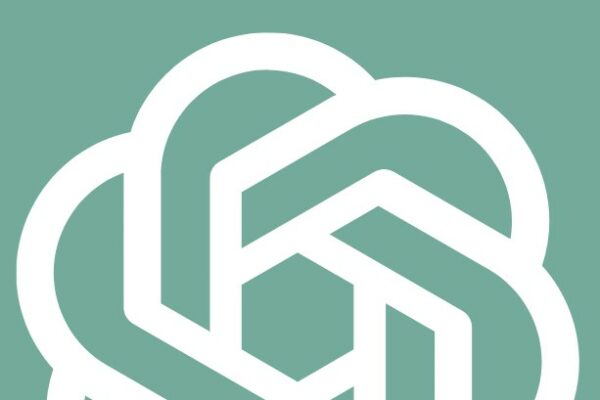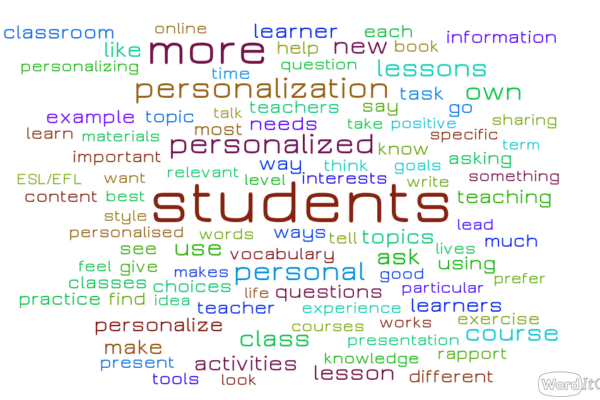Teacher training in new Technologies Part 2
In my last post I wrote about the recognition of an increasingly technological society that must be accompanied by the awareness of the need to include the skills and competences to deal with the new technologies in school curricula.
In this second part, I will focus on the competences of the teacher for the 21st century, having technology not only as a support, but also as taking a very important role on teaching and learning.
Technology and Information have become part of our daily lives in the last years and very quickly have changed everyone’s behaviour directly interfering in the dynamics of our interpersonal relationships and with the world, which could not be different with education. There are many discussions about the need for improvements in teaching, and in educational practice as a whole, and these discussions are often linked to the possible benefits of using Information and Communication Technologies.
However, it is necessary to take into account the difficulty that many teachers feel when faced with technological resources. Is the teacher prepared and able to use the technological resources in the classroom? How to turn technology into an ally of the teacher in the process of teaching and learning? We know that the teacher need to change postures, acquired habits, to know the subject … We know that it is not easy to face a change of habit and, therefore, the teacher will need to use strategies that encourage their students to learn and work in teams leading learners to develop skills and attitudes that will help them act in their professional life in the future.
Technology can and should become an ally of the teacher and might be used in favour of education not only as a resource of support, which will serve as a stimulus both for the students and the teacher, but also as a facilitator of the teaching and learning process.
The use of the new technologies in the classroom together with the contents and the information students possess allow the development of critical thinking and the logical reasoning of the students as long as the teacher mediates the process.
There is, therefore, the need for the teacher to know the technological resources appropriately and also know how and when to use those resources confidently.
In order to promote the educational development of the students, it is important to emphasize how technology in the classroom is fundamental \for nowadays learning process, and the teacher, if prepared and constantly update to use these resources, will, indeed, facilitate their teaching and the learning on the part of their students. Thus, the teacher could also explore more technological resources for the better development of their content, thus enhancing and enriching their classes.
INFORMATION TECHNOLOGY: NEW CHALLENGES
The various political, economic and social changes that have occurred in last years have significantly changed today’s society. Never before we have been exposed to such a great flow of information as we are exposed nowadays. Information became fundamental for the contemporary society either in the interpersonal relations or in organizations.
Information permeates the relationships of individuals and is transmitted at an ever-increasing rate. This large flow of information, transmitted with increasing speed and in an increasing flow, changed the way of acquiring knowledge, as well as society’s view of its importance.
In the Information Age, knowledge became an important asset, whether of contemporary organizations or individuals, the technological advance eventually changed the way in which this knowledge was acquired. Since the creation of the global computer network, where the exchange of information has gained a much larger volume than before, we can observe the beginning of one of the major transformations that contemporary society is experiencing: the way knowledge is viewed, produced and transmitted.
These changes occurring in society together with the new challenges, lead education to meet contemporary demands. Teaching and learning are being challenged like never before. There is too much information, multiple sources, different views of the world.
Educating nowadays is more complex because society is also more complex and so are the necessary skills (…). We need to rethink the whole process, relearn how to teach, how to be with the students, to guide activities, to define what is worth doing to learn, together or apart. (OLIVEIRA, 2009, p.1)
The main challenge of using new technologies in education (and in educational reengineering as a whole) is due to the fact that the educational model in which the main focus is on teaching rather than stimulating learning no longer meets educational needs.
Traditionally organized in strict disciplines and in a hierarchical way, the curriculum we are working on is not compatible with the network learning that the global network of computers makes it viable. It is necessary to rethink it not only in terms of proposal or curricular project as well as in the field of teaching and learning. (MELLO, 2006, p.1)
The so-called “rethinking education” leads us to reflect on the differences related to the act of teaching and to stimulate learning. While teaching still assumes the role of the teacher as a mere “transmitter of knowledge” and the students the role of “recipients” of this knowledge, the act of stimulating learning gives the teacher and the students much larger roles, since the teacher becomes the bridge to take the students to knowledge and this becomes their main leader.
The effectiveness of the use of new technologies in education is largely linked to the planning and the adequacy of its use in accordance with the educational needs.
MASETTO (2009) emphasizes that “technology has a value, but will only matter if it is adequate to clear objectives and if it is efficient to do so “. According to the author only the use of technologies without the appropriate pedagogical foundation do not guarantee their success.
This need is due to the fact that education is related not only to transmission and acquisition of knowledge, but also to the development of cognitive-behavioural aspects, and therefore needs to consider the characteristics and needs of each student. It is up to the teacher to identify which technologies will be used and the ways in which they will be used so that all students develop the necessary skills and abilities.
Greater access to information, social integration, development of competencies and skills, to stimulate the learning process and restructuring of educational structure: these are just some of the benefits that the use of technology can, if well planned, bring to the educational practice
These changes require a profound curricular change, in which the accumulated contents of humanity become the objects of knowledge. However, the new problems and the projects for their solutions will compose the procedures and activities that will be evaluated by the schools to verify their effectiveness.
To train teachers, in this context, demands:
- Changes in the way teachers are conceived, the flexibility of curricula in schools and the responsibilities of the school in the process of citizen training;
- Socialization of access to information and production of knowledge for everyone;
- Changing the concept of the act of teaching in relation to the new ways of conceiving the process of learning and of accessing and acquiring knowledge;
- Change in the models / interpretive frameworks of learning, moving from the predominant instructional educational model, that is, teaching is built from the application of theoretical knowledge formulated from the human and social sciences that would provide the basis for education;
- The construction of a new educational configuration that integrates new spaces of knowledge in a proposal of innovation of the school, in which knowledge is not centred neither in the teacher nor in the physical space and in the school time, but seen as a permanent process of transition, progressively constructed, according to the new paradigms;
- The development of interactive processes, i.e., co-operative work.
Final thoughts:
Technological resources in the classroom are important and necessary for the development of learning because everyone has contact with the technological world daily, whether by using a smartphone, a computer, a tablet or different media.
It is not simply about replacing the chalkboard and chalk with IWB, mobile devices or virtual reality. The approaches need to be chosen according to students’ needs and the context they are inserted in.
Using features of images, sounds, animations, games, VR, apps, etc., help students to construct concepts, integrating the sensory to the rational and the cultural and social, besides facilitating the application of content. And making learning fun, enjoyable, memorable and more effective. Computer educational games are attractive because they stimulate interest, the curiosity, facilitating the assimilation of the student’s knowledge, helping them learn in the classroom.
These resources are of great help when combined with students’ knowledge and the teacher as an organizer of the pupil’s relationship with the objects of knowledge. Teachers then concretize, enable and guarantee the learning process, and will reflect about himself and his practice. The effects of mediation are, at the same time, cognitive and affective.
The quality of this mediation is fundamental, since it can facilitate or hinder the learning process and lead the student both to success or failure. To achieve learning success, teachers should start from the reality of his students by establishing clear and accurate objectives.






